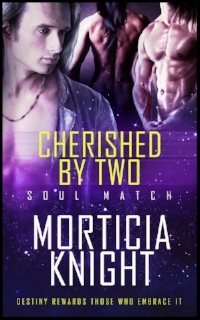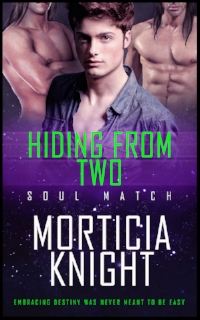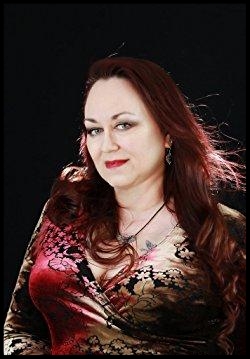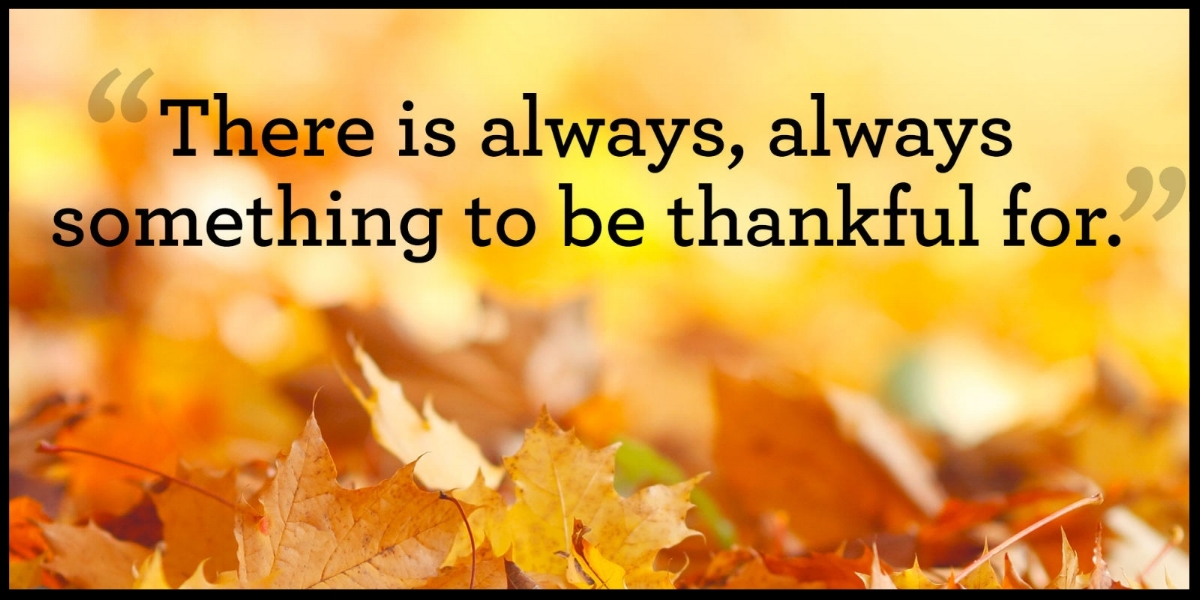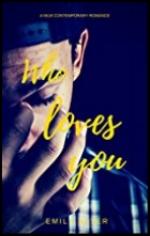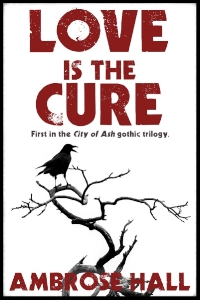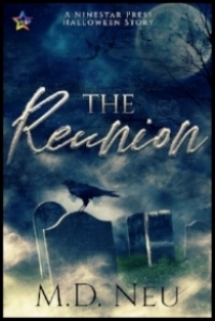This is something new. I’m doing a two for one combo today. I will be discussing ‘When Heaven Strikes’ with the author of the story F.E. Feeley, Jr.
Please give us a quick introduction to yourself?
My name is F.E. Feeley Jr I’m the author of the Memoirs of the Human Wraiths Series, as well as the author of several short stories, Indigent, The Scarecrow, Between Us, My Final Blog featured in Gothika 5, and poet.
‘When Heaven Strikes’ is your newest book. It’s not your typical romance piece (even one of the character’s mention how not all relationships are like a romance novel, which I loved by the way.). What made you pick this kind of romance to write about?
I like to write about things that scare me. I usually write about ghosts and spooky things. Yet, when confronted with the idea of writing a contemporary romance, I realized just how scary love really is. I mean, think about it, we go through our entire life with this narrative of who we are in our heads. Then we meet someone and for the first time in our lives, or the fifth time depending on how you handle the situation, we see ourselves through the lens of someone else. Then we realize how imperfect we really are.
That’s scary on a whole other level and learning to navigate all of it and strip away the things about you—that’s intimidating.
Ted, the main protagonist, has a lot of issues, but that didn’t get in the way of the story (you didn’t make him whiny and tragic) and he still ended up being likable. Is he based on anyone in the real world?
I was inspired by an artist friend of mine for the work he does. Having zero knowledge of how an artist, or at least someone who draws and paints, actually goes about their craft I winged it. The rest I drew from my own experiences. They say write what you know. Well, I know Ted. I’ve been him. I know Anderson and Josiah and I know Jeff. I’ve been him, too.
Going back to your artist friend, does he know he was, at least a little, the model for Ted?
Yes, I told him. I haven’t heard back however. I hope he likes it.
I’m sure he will.
Now, I thought the ending of the story was amazing. You could have gone very dark, but you chose not to (which I’m happy about), was this always the plan from the start?
Actually no. I was going to go extremely dark to represent the generational gap between Jeff and Gary and Ted and Anderson as figureheads of literature regarding gay men. Yet, when it came time to do it, I just couldn’t. One reviewer complained about Jeff and Gary’s Happy Ever After because of who he was as a person and what he’d done. First of all, I don’t believe in Happy Ever Afters. It’s a false thing we sell people in hopes of profiting off their desire for it.
I wanted this story to reflect life. Jeff and his wife were a twisted pair. The kids suffered because of it. They all did. Jeff, despite the way the story ended, has a long hard road ahead of him.
You aren’t kidding about Jeff and his wife, they are a mess.
But real.
Agreed, with regards to Jeff I was a little surprised with his ending. Do you have any intentions of doing a follow up novel with these characters to maybe explore what happens next?
I may if a story develops. It would mostly depend on the success of this book and if the readers want more.
The underlying tones of this story are abuse and religion, as I read this it felt very personal to me. Is this the case? Do you mind sharing a little about your motivation for writing about such a topic?
Yeah, it’s personal. People have stories. I don’t care who you are, you’ve got something inside of you that holds you hostage on occasion. It was Viola Davis who said, “There is one place that all the people with the greatest potential are gathered. The graveyard.” She went on to say, “…exhume those bodies, exhume those stories, the stories of people who loved and lost, who dreamed big and never saw those dreams to fruition…,”.
I have this desire to connect to people through my art mostly out of a deep need to be understood. You know, through all the literature and the lore of ghosts etc. there is one thing that is almost cliché about it all. Unfinished business. Something or someone that causes that spirit to linger. While I am in no way suicidal, there are things that I’ve known that I fear – would prevent me from moving on if I didn’t find a way to work it out.
Religion is supposed to be, and often is, a force for good in people’s lives. Unfortunately, like everything else, it can be manipulated and twisted into a terrible evil – the effects of which are incredibly long lasting. All this current talk about ‘evil Islam’ and ‘radicalization’ from the talking heads and the current administration in the White House – ought to take a closer look in their own neighborhoods. They ought to not worry about the brown skinned folks and take a good long hard look at the conversations we’re having today about race in this country. Find out its origins and find out WHY almost 150 years later – we’re still having this same stupid conversation about rights and equality. Here I’ll give you a clue, Bob Jones Sr. vs The United States.
You paid a lot of attention to your secondary characters such as Anderson (although he felt more like a second main character to me) Eleanor, Josiah and James. Was that the goal from the start? To have strong well-rounded characters or is that just how it worked out?
I wanted people to experience Ted from multiple points of view. Ted was Anderson’s great love. Eleanor saw him as a gifted artist. To Jeff, Ted and his ‘lifestyle’ was a threat to the tenuous grasp he had on his own reality. Ted was a savior to Josiah. That initial knock on the door was the stone cast into the pond and the ripples that go outward displacing things for better and for worse.
What I loved about this book is that these character felt real to me. Even the setting helped to ground them. They were not the typical ‘perfect’ characters found in gay romance novels was that your goal to make a more ‘every person’ type of character?
There’s an old Rolling Stone song that goes, “You can’t always get what you want, you get what you need.” I think a lot of the screwed up things that happen in life is when we actually get what we want and find out it isn’t even in the same zip code of what we need. Those things often clash and when they do – it can be a honey. Ted wanted to be left alone. Jeff wanted his life as it was. Yet, their need to experience a connection drove them. Josiah needed his father. He needed to figure out how to deal with the fallout. I think we find ways to simply deal with those parts of us that we’re not necessarily proud of. That is what drove me to write the characters the way I did. People are people and people can be a mess of contradictions.
Now that you’ve released ‘When Heaven Strikes’, what’s next?
That’s the million-dollar question. I have no clue. I have a Steampunk Phantom of the Opera story in limbo, I thought about a Christmas Novella, another ghost story. Who knows. Whichever one jumps up and shouts at me the loudest will be the one that gets my attention.
Personal I think a Steampunk Phantom of the Opera would be amazing. Just saying…no seriously do this.
As I understand it this book was self-published, how was the experience after being traditionally published, any advice or wisdom you can pass on?
This experience was a rough one. Without divulging too much background it was slotted to be published traditionally but at the last moment they decided that I should change some stuff to make it more palatable to the ‘romance reader’. Entire scenes. I said no. So, we withdrew from the agreement and I sought out editors and everyone else.
My advice to those who want to self-publish who’ve traditionally gone the other way. Buckle up and show up. It’s work. It’s harder than you can imagine. Yet, I think there’s virtue in it. You’ll respect the process more. You’ll respect the work that goes into it, more. And perhaps that’ll keep you from posting your work for 99-cents.
I’m guessing you’re not a fan of not underselling your work. What do you think about how authors are willing to sell their work so cheaply and others who give it away? Do you think some of it fits in the realm of marketing and PR?
There is no window to another man’s conscience (or woman’s). I do think it’s a bad practice, however, and I think it hurts just about everyone inside of the writing world.
Think about it, 99-cents for months possibly years’ worth of work. The money put in to create the novel if you’re traditionally published. The inability of smaller presses to compete. The worst part is that then it stops being something that is done once in a while to boost a sale prior to a new release, it becomes expected. People complain over the cost of an eBook at $6.99. That’s a Starbucks coffee, something you’ll enjoy for an hour. A book last’s forever. I don’t see this as a consumer hurting the industry – I see it as other authors hurting their own. Sure - you’ll be an amazon best seller. Yay, you. However, you’ve killed some poor soul out there working just as hard as you are who maybe can’t afford to compete with that.
Add in Kindle Unlimited (KU) where someone is paid $0.0046 cents per page read IF the book is read in its entirety? Come on. That’s a complete rip off.
I saw people sharing a blog someone wrote about why she decided to leave KU. It was something a lot of people read and shared and are considering. However, I peeked in at other authors who shared it around and read some of the comments and found some surprising stuff.
First of all, I think a lot of people were shocked. The Netflix binge mentality is diluted a little bit because of proximity of writers to their readers via social media. It’s hard to look forward to a favorite author’s new release when she/he has to give up and go back to their 9-5. I saw a lot of comments in that frame of mind.
Then I saw comments like, “Yeah, I know KU rips off authors but I wouldn’t be able to feed my reading binge if I didn’t have it.”
There’s virtue in having to wait for something.
While it’s great authors have this advantage now to publish their own work – I think there needs to be an agreement reached between the writers and the readers saying, “We recognize this work as art and we value art so we’re not going to let you fall victim to the whole ‘starving artist’ cliché.”
As a gay man how important it is to see the full LGBTQ+ community represented in all forms of fiction and media? And as an author what is your responsibility to show this diverse community?
I think it’s important for people to tell their stories regardless of who they are. I think, however, that if a publishing company is in the business of producing a minority group’s stories they damn well better let those people speak their truth.
Right now there is a monopoly on LGBTQ fiction in the m/m romance genre – and these stories are all being viewed through the lens of romance readers and that’s unfortunate.
One of the motivations of writing this book the way I did was to show people a reality of modern gay life. There was no antagonistic split, no fallout argument, I met my husband on December first, we went out on a date three days later, and have been together for seven years this December. We broke up for six hours one day. That’s it.
Together, we have weathered our life with dignity and with determination.
When I see statements like, “that’s not how people really act” when it comes to these reviews – I can’t help by shake my head.
That may not be how people in romance novels work- but romance novels aren’t supposed to be reality. I think too often those lines blur and people get confused.
In your bio you mention you love to cook, what types of foods do you cook?
Yeah, I love to cook. I will cook just about anything. From stuff, I remember my parents making, to things I invented myself, to recipes from friends. I just discovered the joy of Rachel Ray as a matter of fact and so has my waistline.
I love cooking. It’s nourishing, it’s social, it’s sometimes sexy, but cooking and eating and talking over dinner always brings me back to earth. It’s really kind of funny. When someone asks me why I am such a stickler of race and racism – I tell them because I’m hungry.
If I don’t like you – I won’t eat your food. I won’t break bread with you.
That’s why I think food can help resolve a lot of old anger and disputes.
I want to eat with you. I want to spend time with you. I can experience you through what you make. It’s intimate.
What is your favorite type of food?
Chinese will make me love you.
That being said, I’ll eat just about anything.
You mention you write poetry and I’ve read some on your blog. What is it about poetry (writing it) that you enjoy so much?
I think poetry is beautiful. It’s not something I’ve always enjoyed. As a matter of fact, it seems to be a dying art. I mean, sure, you have angst filled poetry written by teenagers and young adults, rhyming schemes you find on twitter, but real poetry. Real honest to goodness brilliance out there such as The Day is Done by Henry Wadsworth Longfellow. Gorgeous. I am nowhere near that level of brilliance but writing it is an exercise to one-day writing something worth publishing.
Do you have any final messages for readers?
Yes. In these times – art is incredibly important. Art reflects life. Support the arts whatever the medium. It saves us all.
For more about author F.E. Feely, Jr. check him out on his website here.













